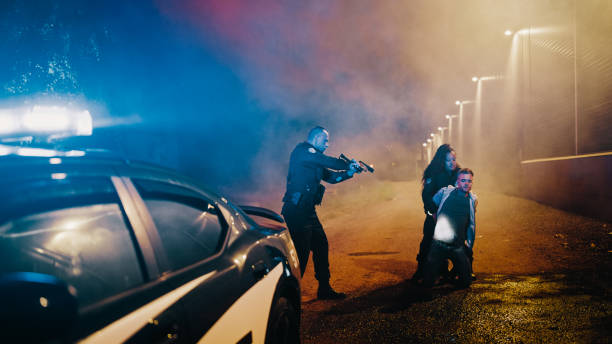Whether you’re stopped on the street, pulled over while driving, or visited at home, it’s essential to understand your legal rights during any encounter with the police. Knowing these rights empowers you to protect yourself, remain calm, and avoid unnecessary complications.
Contents
- 1 1. Your Right to Remain Silent
- 2 2. Your Right to Refuse a Search
- 3 3. Your Right to Legal Representation
- 4 4. What to Do If You’re Stopped on the Street
- 5 5. What to Do If You’re Pulled Over in a Vehicle
- 6 6. Dealing with Arrests
- 7 7. Recording Police Interactions
- 8 8. If Police Come to Your Home
- 9 9. What NOT to Do
- 10 Final Thoughts
1. Your Right to Remain Silent
You are not required to answer questions beyond identifying yourself (in some jurisdictions).
What to Say: “I’m exercising my right to remain silent.”
Important: Once you say this, remain silent and don’t engage further.
2. Your Right to Refuse a Search
The Fourth Amendment protects you from unreasonable searches.
Unless:
- The officer has a warrant.
- There is probable cause.
- You consent to the search.
Tip: Politely say, “I do not consent to a search,” if asked.
3. Your Right to Legal Representation
If you’re arrested or detained, you have the right to an attorney.
Say This: “I want to speak to a lawyer.”
Note: Once invoked, police must stop questioning you until your lawyer is present.
4. What to Do If You’re Stopped on the Street
- Stay calm and don’t run.
- Ask if you’re free to go. If the answer is yes, walk away calmly.
- If detained, do not resist—even if you believe the stop is unjust.
5. What to Do If You’re Pulled Over in a Vehicle
- Keep your hands visible on the wheel.
- Provide your driver’s license, registration, and proof of insurance.
- You can refuse to answer questions about where you’re going or what you’ve been doing.
6. Dealing with Arrests
If you are placed under arrest:
- Do not resist or argue.
- Clearly state you wish to remain silent and want a lawyer.
- Don’t explain, justify, or argue your case with the police.
7. Recording Police Interactions
In most states, you are legally allowed to record public police interactions.
Best Practices:
- Announce that you are recording.
- Do not interfere with police activity.
- Stay at a safe distance.
8. If Police Come to Your Home
- You don’t have to let them in without a warrant.
- Ask to see the warrant through a window or peephole.
- If they don’t have one, politely decline entry.
9. What NOT to Do
- Do not lie or provide false documents.
- Do not physically resist, even if you believe your rights are being violated.
- Do not make sudden movements or escalate the situation.
Final Thoughts
Understanding your rights during a police encounter can protect you legally and physically. Always remain respectful and calm, assert your rights clearly, and seek legal assistance if necessary. Knowledge is your strongest defense.
| In situations where an arrest occurs, understanding your rights is crucial. After an arrest, securing release through bail is often a priority. It’s important to know that you have the right to contact an affordable bail bonds company to assist in this process. These companies can provide the necessary financial support to post bail, allowing you to focus on preparing your defense. Remember, staying informed about your rights and options can significantly impact the outcome of your legal situation. Always ensure that you are aware of the resources available to you, including legal counsel and bail services, to navigate the complexities of the legal system effectively. |




